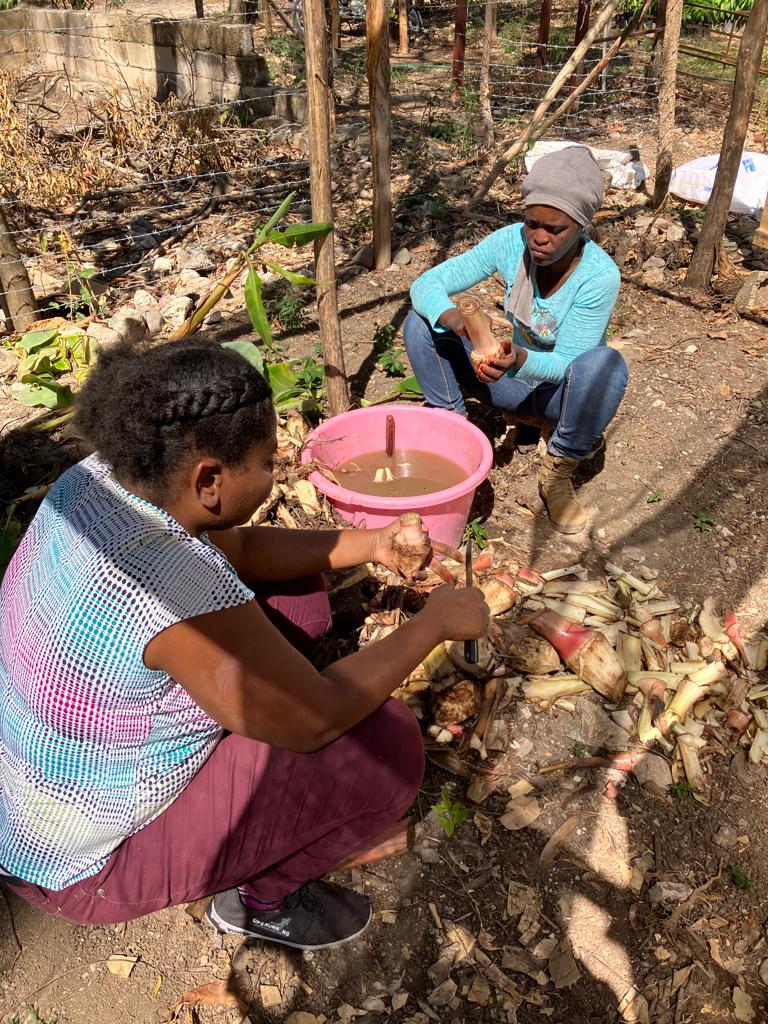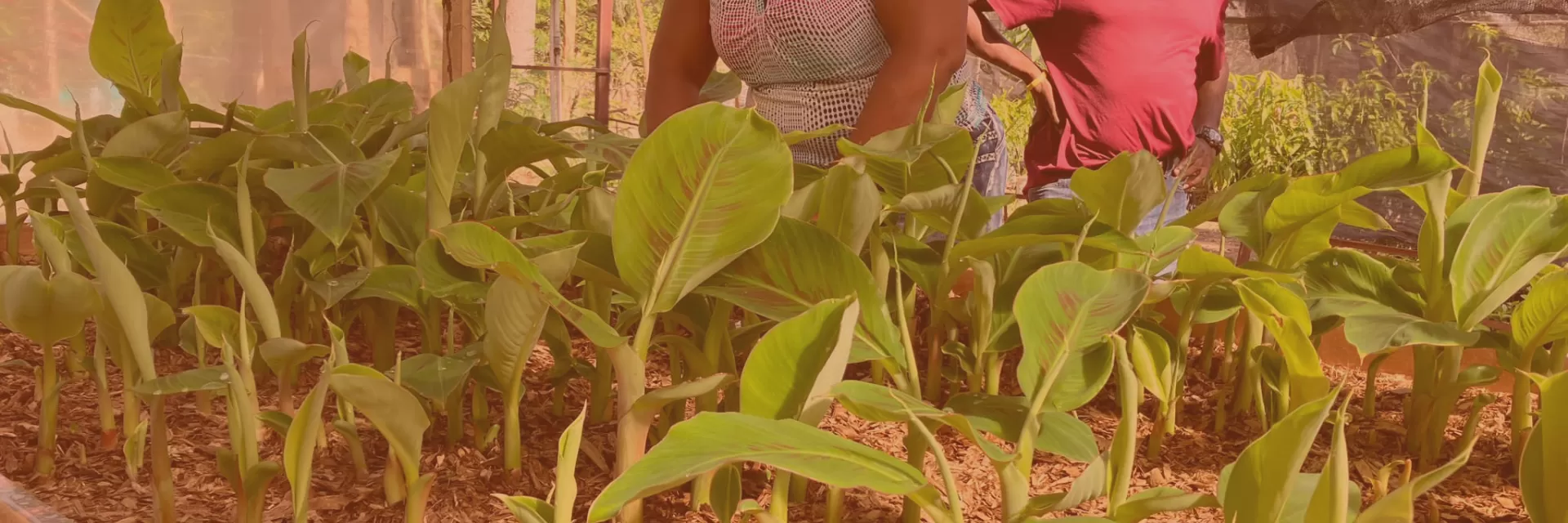Consistent with our mission statement, Quixote Center’s work in Haiti prioritizes systemic change. Our theory of change has three aspects:
-
Economic development initiatives that lead to meaningful and sustainable jobs and income for families and communities;

Grepen Center prepares plantain seedlings -
Reforestation to preserve Haiti’s environment and protect the soil and watershed;
-
Advocacy to promote U.S. policies that support Haitian democracy and Haitian-led solutions to poverty, violence, and migration.
Advocacy has become especially important at this crucial moment in Haiti’s history. The violence in Haiti is untenable and has made our other work in Haiti extremely challenging. Gang violence has taken the lives of over 1,230 people between July and September of this year alone. People are living in fear, and many have displaced.
In response, the United Nations, with U.S. leadership, has authorized Kenya to deploy an armed security mission. Haitians, Haitian-Americans, and the Haiti solidarity community in the United States are divided about whether the Kenya police action is the right solution, making collective advocacy challenging to pull off, and thereby diminishing our impact. The Biden Administration’s key advisor on Haiti, William O’Neill, is firmly in support of it, with some caveats about respecting human rights and the need for a functional justice system (neither of which can be assured in the current environment).
At this point the Kenya mission is on hold. Kenya's Parliament has approved it, while the courts are still determining its legality. It is very difficult to assess the proposed intervention without knowing its exact mission and who will guide it. It is hard to argue with a mission that is designed to strengthen Haiti’s police force, but we have not seen the details of how that will work. As O’Neill points out, some members of the police force have been tied to gangs, and strengthening the police force needs to be linked to better police vetting, addressing corruption, and a functional justice system. There is no indication that any of that will happen under Haiti’s current Prime Minster, Ariel Henry. So I am sympathetic with government officials in Kenya who are concerned that their police are walking into a death trap.
I’m also sympathetic with the many Haitians who hope that a security mission will ease the pressure from gangs on roads and other infrastructure so that they can return to some normalcy. With a small intervention force (2-3000 total) entering a chaotic situation, aren’t we setting them up for failure?
While Kenya works this out, there are still things we can do to address the root causes of Haiti’s violent gang takeover of most of the country:
-
Urge Congress to pass the Haiti Criminal Collusion Transparency Act S. 396/H.R. 1684 which requires the State Department to investigate and report on collusion between Haitian elites and violent gangs, and impose additional sanctions on officials and private individuals supporting the gangs terrorizing Haitians. Some of the financial support for gangs is coming from the United States. While our government has already imposed some sanctions, they are insufficient to curb the flow of funds and weapons.
The United Nations recently released a study (156 pages in French) making the case for strengthening sanctions against gangs and their supporters. You can find an English translation of the Executive Summary HERE.
-
Pressure the Department of Homeland Security to eliminate illegal gun smuggling from the U.S. to Haiti. Haiti does not produce weapons or ammunition, and most are coming from the United States, usually though another Caribbean country. Our government does have an agreement with CARICOM to work on weapons trafficking, and this week they signed another agreement on information-sharing. But it is insufficient. In FY23 Homeland Security intercepted 72 weapons and 3371 rounds of ammunition headed from the U.S. to the Caribbean. Homeland Security should step up inspections in Miami. Curbing the flow of weapons is the single most important action we can take in the United States to diminish the power of the gangs.
-
Call on Secretary of State Blinken to end U.S. support for Prime Minister Ariel Henry. Henry was not elected, and has impeded civil society efforts to a democratic transition. There is evidence he was involved in President Moïse’s assassination. The U.S. should instead insist that Henry relinquish power, and that the Haitian government support Haitian-led efforts for a transitional government and a return to democracy.
CARICOM has been leading an effort to mediate between the Haitian government and civil society groups, and has failed to find agreement over the issue of Henry staying in power. Henry oversees an illegitimate, corrupt government, and it makes little sense to support a mission to strengthen the national police until and unless there is a transition process in place leading to elections and a democratic government.
In addition to these three actions directed toward mitigating the security crisis, Quixote Center also supports efforts to receive Haitian migrants with dignity and compassion, and to invest in initiatives that sustainably strengthen food security.
-
Help fight rising hunger by leading Congress to use its appropriations, oversight, and legislative authority to change USAID’s approach to hunger and agriculture in Haiti to invest in initiatives to mitigate the impact of drought, as well as training and technology for small-scale farmers, so that Haitians can feed themselves.
-
Call on the White House and DHS to halt deportations of Haitians and accelerate work permits to migrants who have received TPS and Humanitarian Parole.
If you would like to contact your Members of Congress with this message, you can do so at this link. We will continue to work with our partners to provide opportunities for meaningful advocacy on these issues.
My next post will describe the other points in our theory of change.
Thank you for your support.


